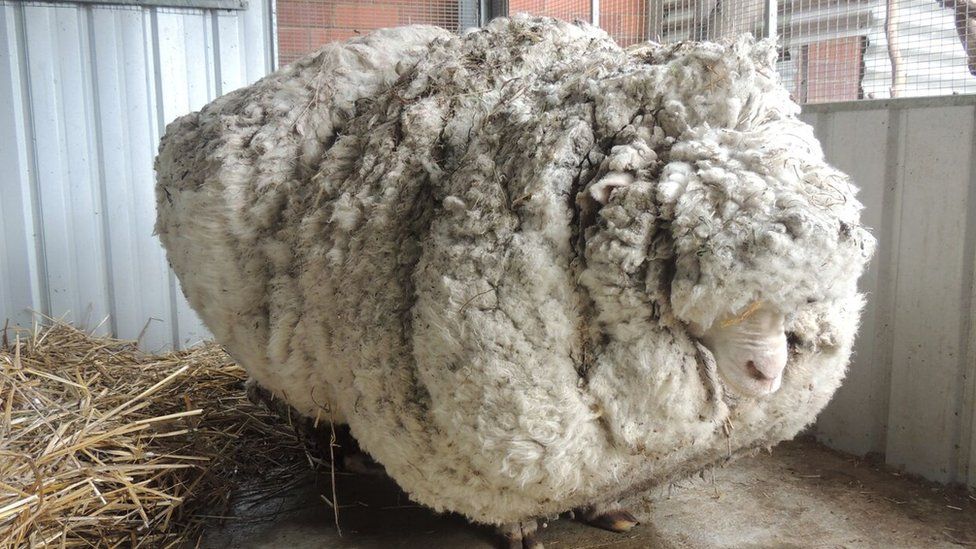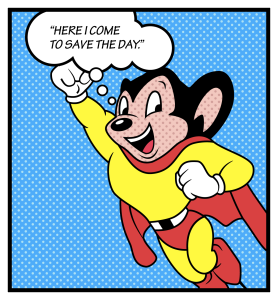
I‘ve been thinking about sheep lately. Two in particular: let’s call them Trevor and Charlie.
Trevor is the star of a car commercial. While his flock is contentedly grazing, he takes off in the opposite direction and jumps into an SUV driven by an affluent couple. He becomes their pet, of sorts, going for walks on a leash, being bathed, enjoying car rides with his head out the window. The voice over proclaims: “Life just gets better when you break from the herd.”
We smile as he chooses individualism over stultifying conformity. If Americans had a motto, it would be “You’re not the boss of me,” and Trevor would be our mascot.
The second sheep is Charlie. Charlie was found wandering the hills in Australia, alone. Like Trevor, Charlie broke from his flock, but he wasn’t living the life of a pampered suburban pet.
After the initial exhilaration of breaking from the herd, Charlie began to feel the weight of his “freedom.” Year after year, without his annual shearing, his wool became heavier and heavier until he could barely move or see, and heat stroke threatened to kill him. His “freedom” was slowly killing him and there was nothing he could do about it.
When he was found after 6 years of wandering, his rescuers sheared 80 pounds of wool from him (about half his own weight). At first unsteady and uncertain about walking without the crushing weight he had grown accustomed to, soon he was running and leaping and playing with other sheep. Back in the fold, he found freedom where he once saw captivity.
We have all been Charlie at one point or another. If you have wandered off from the safety of God’s herd, in search of your own freedom or adventure or self-determination, know this: What seems like freedom will one day be a burden you will be powerless to lift on your own. The burden will grow, year by year, immobilizing you, blinding you, threatening your life.
Our wandering isn’t always a dramatic leave-taking. More often, it is small, seemingly harmless digressions. Every time I try to handle pain on my own, I break from the herd. Every time I go off in search of some shiny object that promises freedom, I wander.
By the way, the enemy of our souls knows this well. He knows what will tempt us and he knows just as well that once tempted, it will be hard to free ourselves. As Thomas Brooks wrote, “Satan presets the bait, but hides the hook. “
Come Thy Fount of Every Blessing is one of my favorite hymns, in no small part because of this verse: “Prone to wander, Lord I feel it, prone to leave the one I love.” We are all vulnerable to the “bait” despite our best intentions and resolutions. But this is not cause for condemnation, or despair.
There is good news: We will wander, but our shepherd will never stop looking for you or for me. He is the shepherd who will leave the 99 in search of Charlie and Trevor.
(Yes, Trevor, too, because he is just as lost. As happy as Trevor might be at the end of our commercial, it will not last. He will likely break from his new found “herd” in search of something else — someone with a better car or a bigger house. Perhaps he will long for the company of those in his flock. Either way, he will search for freedom where it can’t be found. I am more like Trevor than I’d like to admit.)
When we allow Jesus — our shepherd — to “find” us, he will lift our self-inflicted burdens, not with reproach or “I told you so” but with tender care. Every time.
“What man of you, having a hundred sheep, if he has lost one of them, does not leave the ninety-nine in the open country, and go after the one that is lost until he finds it? And when he has found it, he lays it on his shoulders, rejoicing.” (Luke 15:4-5)
Thanks be to God.


